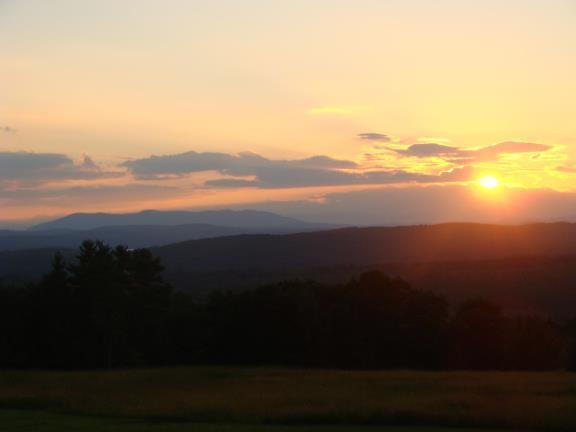Rosin, Carl (Teacher)
I could do several Humanities Hours out of Humanities Moments – there are so many passages and ideas that have animated my imagination. I first find myself drawn to the heart-wrenching climax of Cervantes’s novel Don Quixote, but to describe that would be to reveal the ending, which I would feel queasy doing.
So I’m going with Dylan Thomas’s poem “Fern Hill” instead. Its lyricism conjures the innocence of youth that cannot imagine its own end. That’s kind of what innocence is: a brilliantly perfect inability to envision its own conclusion.
Thomas’s second stanza begins,
And as I was green and carefree, famous among the barns
About the happy yard and singing as the farm was home,
In the sun that is young once only,
Time let me play and be
Golden in the mercy of his means
We are “young once only” and we play and are golden. We all see this in the delight of children and also in the mesmerizing natural panoramas that remind me of a summer evening on a hilltop in Maine. It’s summer vacation all the time. It evokes the feeling that I think that character from Friday Night Lights has in mind when he says, “My heart is full.”
In a way, the ending of “Fern Hill” brings me to what I love so much about Don Quixote and the scene I mentioned a minute ago. Here I am, a middle-aged guy spending every day with teenagers, hoping to share and discuss with them truths about the human condition and our relationships and tragedy and beauty while they, children who are “green and golden” in their “heedless ways,” in their Eden of hope and vigor, start to gain insight about how Time holds them. They are looking toward college and work and beyond, and often they worry and fear, and although for many the curiosity of youth is sputtering, its flame is not out.
Thomas:
Nothing I cared, in the lamb white days, that Time would take me
Up to the swallow-thronged loft by the shadow of my hand,
In the moon that is always rising,
Nor that riding to sleep
I should hear him fly with the high fields
And wake to the farm forever fled from the childless land.
Oh as I was young and easy in the mercy of his means,
Time held me green and dying
Though I sang in my chains like the sea.
Whenever I read “Fern Hill,” and whenever I think of Don Quixote, I do so from the Experience side of the divide between innocence and experience. I peer longingly over at innocence, and I wish for it…and I feel it as if it were still here. It is the wonder of the poem, and of art, that in its presence we can be both green and dying.
Subjects
Literature / Fiction and Poetry / British Literature / Poetry / Teachers / Teaching / Students / Adolescence /
Read More Humanities Moments